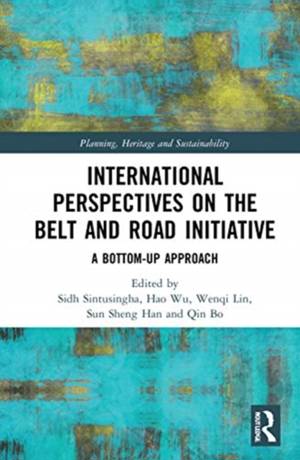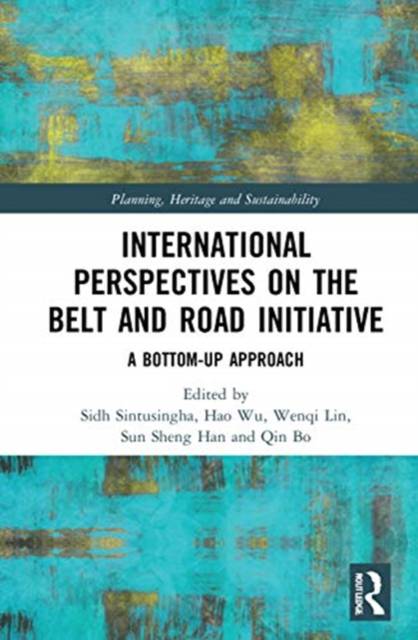
- Afhalen na 1 uur in een winkel met voorraad
- Gratis thuislevering in België vanaf € 30
- Ruim aanbod met 7 miljoen producten
- Afhalen na 1 uur in een winkel met voorraad
- Gratis thuislevering in België vanaf € 30
- Ruim aanbod met 7 miljoen producten
International Perspectives on the Belt and Road Initiative
A Bottom-Up Approach
Omschrijving
International Perspectives on the Belt and Road Initiative investigates the most significant global‐scale international trade expansion and capital investment programme since the Second World War.
This book focusses on the multi-national perspectives of the Belt and Road Initiative (BRI) in order to interrogate the Chinese government's representation of it as a symbol of "peace, cooperation, development and mutual benefit." With specific focus on the interrelationship between geopolitics, infrastructure investments and urban regional development, the book reflects on 12 countries' experiences in depth, including those of Iran, Pakistan, Brazil, Thailand, Indonesia, Japan and Ethiopia, specificly to their economic development levels, political systems, power dynamics and socio-environmental issues. The book clarifies and contributes new knowledge on the nature of BRI concerning its relationship to globalism, neo-colonialism, the notion of developed vs developing countries and their institutions and macro-micro benefits and impacts. In doing so, the book offers a balanced account of the antagonistic geo-political narrative of socio-political conflict and the collaborative framework of real socio-economic flows and development.
The book will appeal to academics, researchers and policy-makers with an interest in the BRI and its impacts on politico-economic development and urban, regional and spatial systems in the Indo-Pacific and beyond.
Specificaties
Betrokkenen
- Uitgeverij:
Inhoud
- Aantal bladzijden:
- 332
- Taal:
- Engels
- Reeks:
Eigenschappen
- Productcode (EAN):
- 9780367427320
- Verschijningsdatum:
- 31/05/2021
- Uitvoering:
- Hardcover
- Formaat:
- Genaaid
- Afmetingen:
- 155 mm x 239 mm
- Gewicht:
- 589 g

Alleen bij Standaard Boekhandel
Beoordelingen
We publiceren alleen reviews die voldoen aan de voorwaarden voor reviews. Bekijk onze voorwaarden voor reviews.










